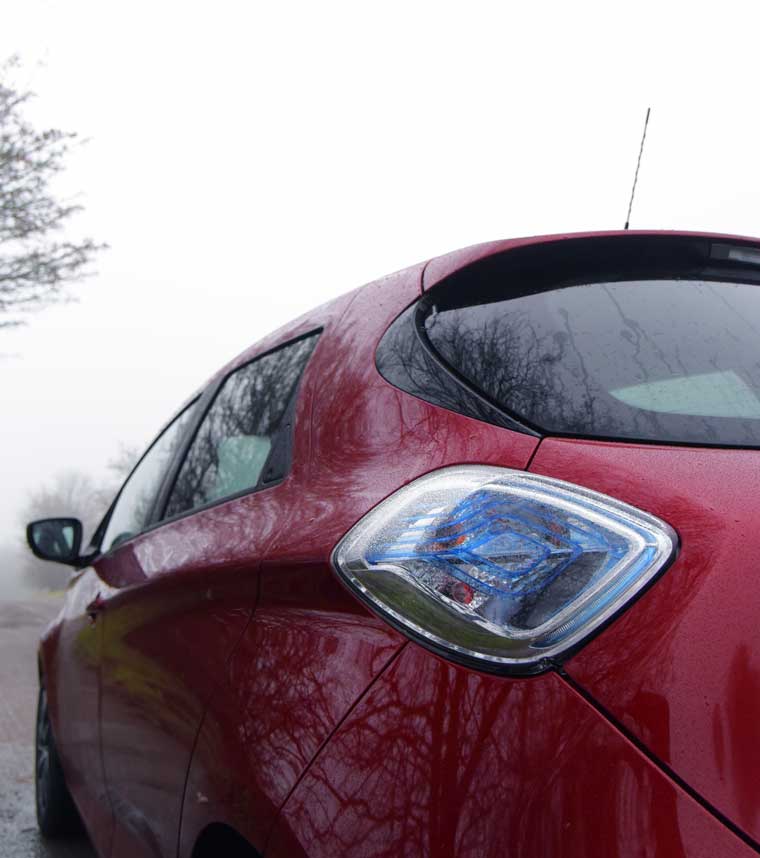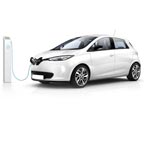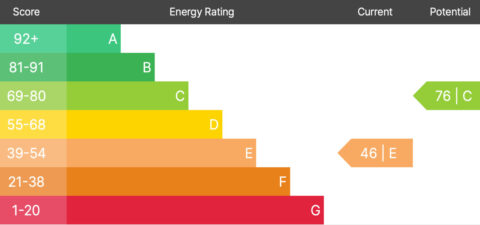There’s a lot of hype around electric cars, partly due to the realisation that diesel cars aren’t a cheap, clean option anymore. We were advised to buy them to reduce CO2 emissions and encouraged by the low fuel bills. Unfortunately, the dash for diesel has driven down motoring costs at the expense of air quality — especially in urban areas.
So, after being persuaded to ‘go diesel’, is it now the time to consider going electric? — what are the options? And is it really a practical solution for you and your lifestyle?
Things to consider if you’re thinking of choosing an electric car.

How much do electric cars cost to buy?
Buying an electric vehicle isn’t cheap at the moment — even with the UK government giving away subsidies to vehicle manufacturers, the purchase price is still much higher than conventional internal combustion engine cars. This is mainly due to the extra Research and Development going into the evolution of electric vehicles and the expense of lithium-ion batteries.
Long-term, battery prices are dropping fast, and the mass adoption of EVs (Electric Vehicles) will drive down costs year-on-year. New technologies such as solid-state lithium-ion batteries, which the VW Group are pinning their hopes on after ‘Diesel-gate’, will make electric cars even more viable. The car industry is making a considerable investment in alternative fuelled vehicles and are looking to shift as many EVs as possible. Both the Government and manufacturers are offering many incentives to switch to cleaner low emission electric vehicles. Now could be the ideal time to consider a greener way to drive?
Petrol & Diesel Car Journey Cost Calculator
Leasing an electric car
If you’re worried about technology and resale values, looking at leasing or personal contract hire for an EV may be worthwhile rather than an outright purchase. The EV route could be a real winner for the business owner, company car driver or fleet manager. The benefit-in-kind (BIK) tax rates for these vehicles are much lower, especially for pure electric cars. Plug-in-hybrids are less generous than they were. However still much better than a conventional car. The capital allowances for companies purchasing low-emissions vehicles are still very generous, as is the cost of installing electric vehicle charging points at places of work.
Second-hand value of electric cars
The first Nissan Leafs appeared in the UK in 2011, this means there are plenty of used cars appearing in the second-hand market. As with all used cars the price will be driven by the mileage and overall condition of vehicles. Many second hand electric cars in the market will have come from leasing companies — who stipulate the servicing intervals – hopefully they will have been checked regularly. Other electric cars on the market will either have been owned by ‘Early adopters’ or those interested in minimising their carbon footprint, so, potentially they will have been driven around fairly sedately – eking out the maximum range per charge!
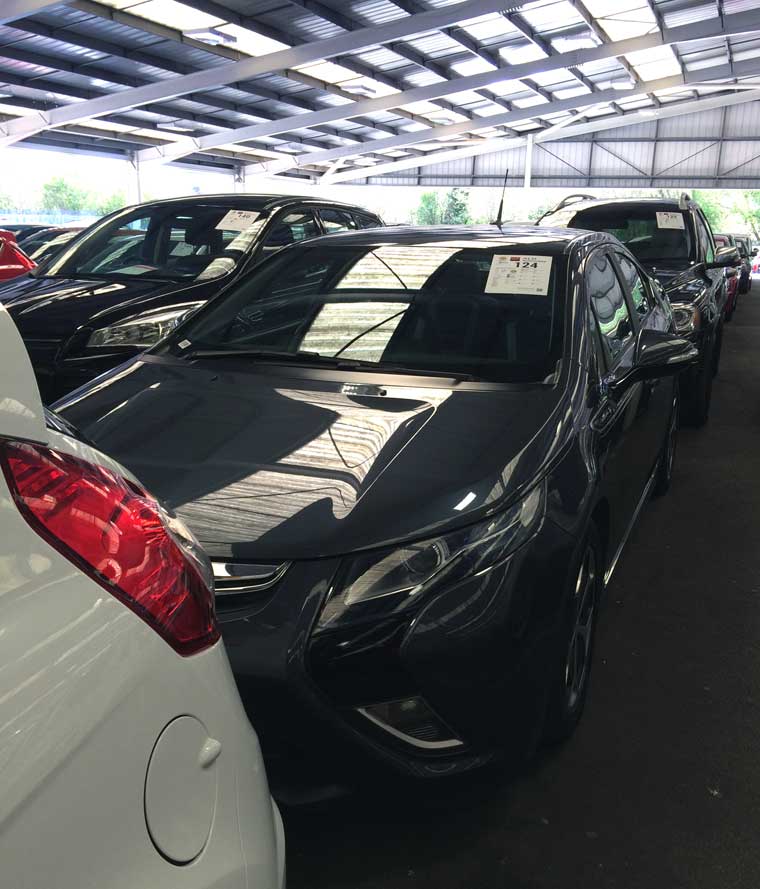
Battery longevity; reports from manufacturers, such as Nissan, claim that battery life is standing up well. Over time batteries will start to degrade, decreasing their available range. Considering buying a second-hand Nissan Leaf, it’s worth looking at the battery capacity bars when fully charged. Most manufacturers offer five- to eight-year warranties, making buying a two- or three-year-old electric car a safe bet. If you’re really concerned about battery life, purchasing something like a Renault Zoe with a battery that is hired could be a better option. Renault rent their batteries and you pay on a monthly fee basis, worked out by your annual mileage. Should the battery fail, or drop below 75% of its original capacity during your ownership, they will replace it. Although this sounds good, it’s worth noting that the battery rental charges somewhat mitigate the savings you make on EV ownership. And it is not just Renault that offer battery rental schemes, some Nissan Leafs in the second-hand market also have rented batteries.
Mechanically EVs should have fewer issues than conventional cars, as there are far less moving parts in an electric motor – when did you last have to service the motor in your vacuum cleaner? That said, you’ll still need to keep your brakes, tyres and running gear in order, and manufacturers still seem to stipulate servicing regimes based on internal combustion engines, even though there’s no engine oil, plugs, or filters to be consumed. It’s important to keep your servicing up to date and within warranty conditions, just in case something does go wrong. If you’re buying a second-hand electric car, always check that it has been serviced properly by a main dealer and at the right time. Taking an electric vehicle to your local garage isn’t an option until EVs become more mainstream.
Electric Car Journey Cost Calculator
It’s a good idea to be aware of any electrical or software issues that could be problematic as EVs age. Do your homework on EV forums, such as SpeakEV, to be aware of any potential known problems and fixes. There’s an enthusiastic EV-driving community, and tapping into this knowledge is well worth it if you’re considering the second-hand EV route.
Electric car practicalities – have you got off-road parking?
To get the full financial benefits of electric car ownership charging at home is a must. So, there’s one key point to consider before you read any further – do you have off-street parking? If not, you’re probably better off with a non-plugin hybrid car. Why? Trailing electric cable across the pavement is a ‘no no’; not only is it a trip hazard, it’s straightforward to damage the cable which could end in a nasty accident. Unfortunately, as of half the UK car owners don’t have off-street parking, until an alternative means of charging is devised, pure EV vehicles aren’t an option for them.
Charging electric cars at home – what do you need?
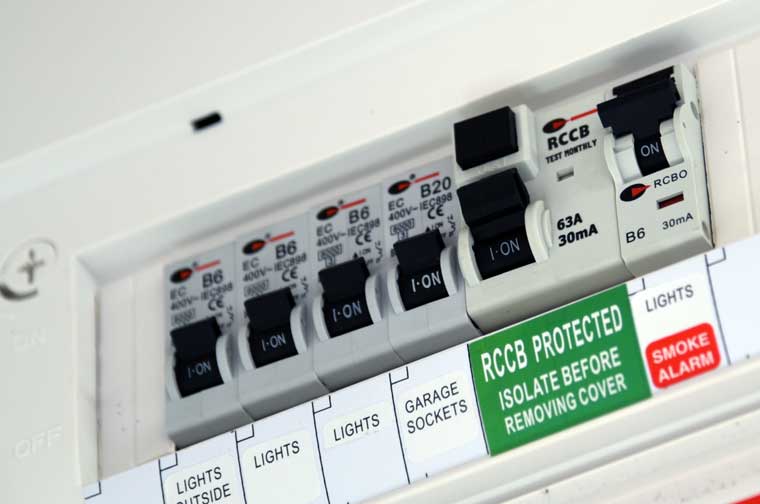
Okay, you’ve got off-street parking! Next hoop – have you got a suitable space to locate a charging point? And does your existing household wiring, consumer unit (fuse box) have the capacity to add an extra 32-amp or 16-amp circuit? Time to find a suitably qualified electrician, hopefully, they should give you the answers and advise on the maximum output charger you could install.
What do EV charger points cost to install?
At the moment, there are grants to install chargers. They cost around £500 with the government grant, depending on the suitability of your current wiring. How far your charge point is from the consumer unit could affect the installation costs too. Talking to your local electric car dealer would be an excellent place to get a feel for the costs and potential incentives to install a charger.
Another thing to consider is where you store the cable when not charging. Putting the cable back in and out of the car every time you charge it is a real pain, and they are challenging to coil, get dirty and wet in winter and then take up space in the boot. I’ve found the best solution is to have a second cable permanently connected to the charging point, with the cable which came with the vehicle — which isn’t usually long enough anyway, stored in the car, for those occasional ‘away from home’ charges.
How long does it take to charge an electric car?
Most EV owners tend to charge at home overnight, a 220/240 volt 16-amp charging point will take approximately 6/8 hours flat to full, and a 32-amp charging point can charge in around 3½/5 hours — be warned – some electric cars are not capable of being charged up quickly! Make sure you check. Charging from a standard 13-amp is an option if you have an outside socket, but this will extend the charging time to 8 to 12+ hours. Charging times can be much longer if you have a car with a large-capacity battery.
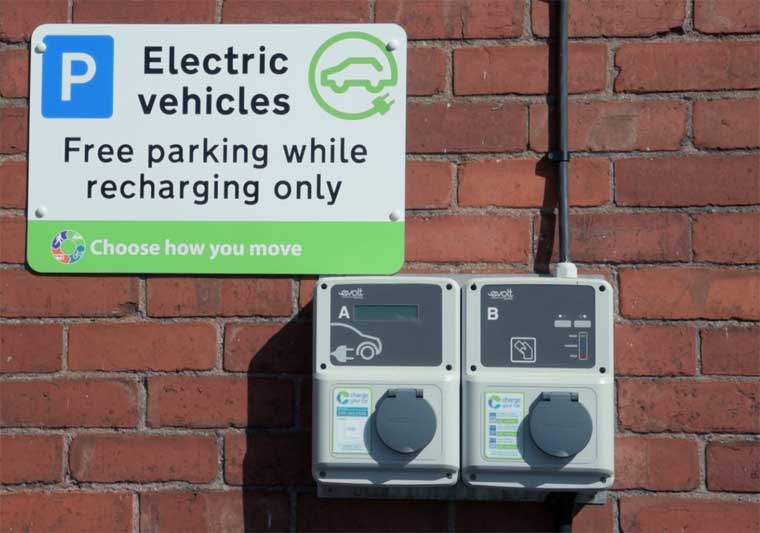
Remember to plug it in – getting into the electric driving habits!
Forgetting to plug in your car can be a real pain, especially if your car has a range of less than 100 miles, which most do. It’s incredible how relatively short journeys clock up. Inevitably, you’ll get the call to pick up someone or need to pop to the shops. Only to find that you haven’t plugged in the car, and it’s only got 10 miles left and will take hours to charge up! Getting into the habit of plugging in your EV is a must – if you constantly forget to charge your mobile phone, then an EV may not be the best choice. If you’re good at remembering to charge your phone, then it is straightforward to get into the habit of charging a car and a lot less hassle than having to fill up with fuel at the garage.
What are the running costs of electric cars compared to conventional petrol or diesel vehicles?

Now this is where electric vehicles win hands down if they are charged at home. You could be looking at as little as 4p to 5p a mile to do all your A to B short trip motoring. Start charging on an off-peak Economy 7 tariff at night, and you’d half that again. This makes even the most fuel-efficient diesel look like an expensive option. If you’re lucky enough to have solar PV panels fitted at home, you’d be effectively driving around for free during the summer months when charging during daylight hours.
Electric vehicles running costs
Going beyond your battery range, fast charging network and ‘range anxiety
‘Range anxiety’, yes, it does exist, and it’s not very pleasant. The thought of getting stranded at a motorway service station because the chargers are out of action isn’t very appealing, or waiting long periods for a rapid charging point to become available – there are only so many coffees you can drink while waiting for your car to charge!

The recently introduced fee for using rapid chargers doesn’t make much financial sense when compared to fossil fuels. However, if you’re a customer of the energy suppliers providing fast chargers, they allow free charging (within limits) for their customers. New players moving into the charging network should help drive competition and hopefully reduce costs in the future.

Hyundai Ioniq running costs – MPG
I expect there are plenty of Tesla drivers who’d say range anxiety is not a problem – that’s because a Tesla has got that extra bit of range compared to, say, a first-generation Leaf or Zoe — and they are doing trips where they can guarantee charge points at each end.
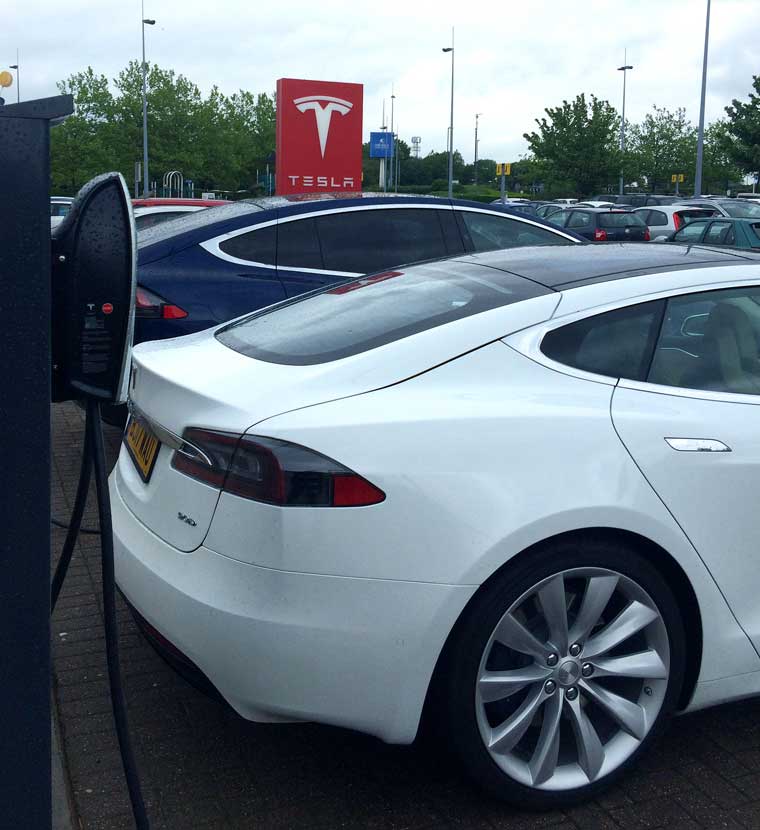
My experience is that reasonably priced electric vehicles make excellent second cars or urban run-arounds. Regular long trips in pure electric cars can be a little stressful at the moment, this will improve as the EV charging network matures and the capacity of batteries improves.

Plug-in Petrol Hybrids running costs
If long trips are the norm and you’re a one-car household, I’d certainly recommend a Plugin Hybrid (PHEV) rather than a pure electric – unless you’ve deep pockets and can afford a Tesla!
Plugin Hybrids combine the best of both worlds, short-run journeys and commutes in battery mode, then conventional fuels for longer journeys.
Electric Vehicle – tax breaks, grab them while you can
This is a no-brainer at the moment… vehicle tax is Zero on pure electrics, 100% capital allowances for company vehicles, no fuel duty on electricity and only 5% vat. Very low Benefit in kind (BIK) rates for company car drivers. I can’t imagine these incentives will last forever, so now might be the time to seriously consider it.
Electric car maintenance
The other advantage of an EV is that they have far fewer moving parts than an internal combustion engine, and in most cases, they don’t even have gearboxes. All this means is less servicing is needed and no dirty engine oil to dispose of. Hopefully, over time the price of EV servicing should drop as more specialist garages appear, and the longevity of electric motors is factored into servicing schedules.
The price of replacement and higher capacity batteries are dropping fast. Suddenly, a 10-year-old EV could have doubled its range by replacing its battery cells. This should make replacing batteries that have reached their end of life more economical.
Are electric cars better for the environment?
The marketing talk from the manufacturers plays on the words zero emissions. Okay, this is true when the EV is moving, but not so true when you are charging! Unless you’re charging from a green energy supplier or a renewable source. The standard UK electricity generation (fuel mix) has become much cleaner in recent years, with CO2 emissions falling yearly. Even so, the UK electricity generation isn’t carbon-free by any means – charging any electric car will have an environmental impact – it just won’t be coming directly from the tailpipe!
The significant benefit of EVs, especially if you live in an urban area, is air quality. Diesel vehicles are making our towns and cities increasingly unpleasant and unhealthy places to live, with ever-growing level’s Nitrogen Oxides (NOx) and particulate pollution. Action is urgently needed to reduce these pollutants, and EV adoption in these areas could have a considerable impact on reducing emissions and improving air quality whilst reducing CO2 emissions.
The future is smart – using your electric car as a power station, smart charging, grids and demand reduction.
Electricity generation and the distribution grid are about to go through a complete revolution. Ever cheaper renewable energy generation technology, such as solar PV and wind, are making localised power generation more economical. The unpredictable nature of renewable generation makes finding ways to store this energy a priority.
The ‘internet of things’ should lead to the development of smart electricity grids that can respond to energy demands, helping to smooth out spikes. Technologies that could remotely control devices to reduce demand e.g. by switching connected refrigeration units off for short periods, or stopping your electric car charging whilst demand is peaking, should become commonplace in the coming years.
EVs could have a massive impact on the efficiency of the grid, as they could potentially be used as mass energy storage units, which enables you to sell back power to the grid when demand is high. Then charging when energy is cheap, or there’s an overcapacity in renewable generation. Say you’ve solar PV panels on your house which has fully charged your electric car; you could then sell some of that energy back to the grid during the evening when energy is needed.
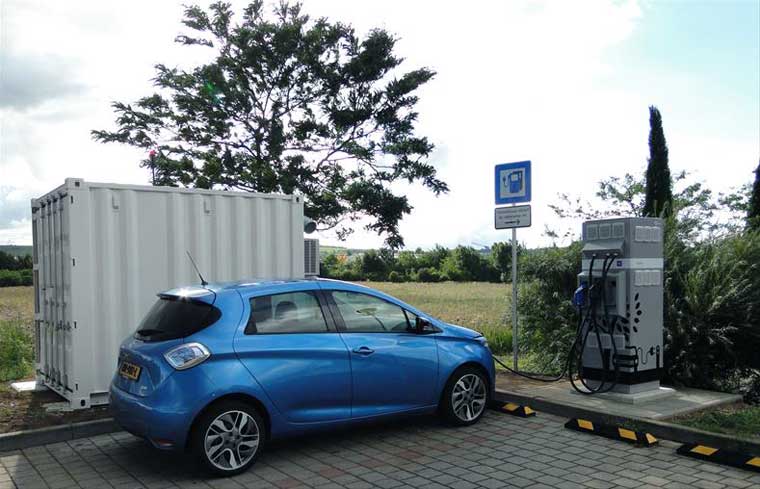
The car industry is already investing in solutions for reusing batteries that have reached their end-of-life capacity for EV applications. These batteries can have a considerable second life as home energy units capable of storing significant energy. Renault Energy Services are working on the development of smart charging, vehicle-to-grid interaction and second-life batteries applications. UK-based Connected Energy has installed two quick-charge stations based on E-STOR energy storage technology on highways in Belgium and Germany, using second-life EV batteries.
It’s an exciting time for EV drivers, manufacturers, and the energy industry and potentially good news for the environment.
And then there are autonomous vehicles, self-driving cars and the like – that’s a whole new topic!
See the most energy efficient...
← SWIPE →
Please note: We do not publish sponsored content or guest posts that are trying to promote specific products or brands. If you have a genuine newsworthy story you would like to share please do comment or email.
